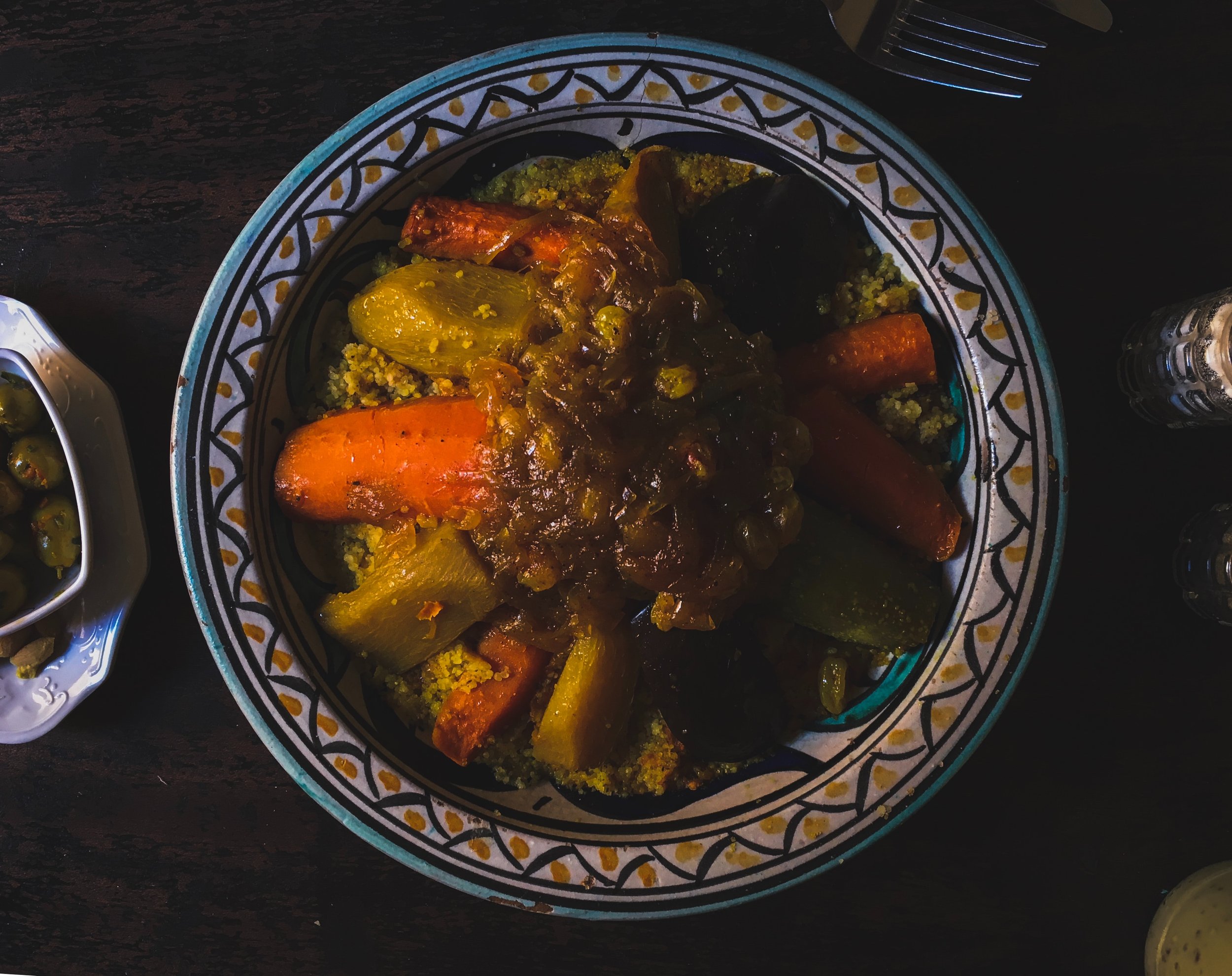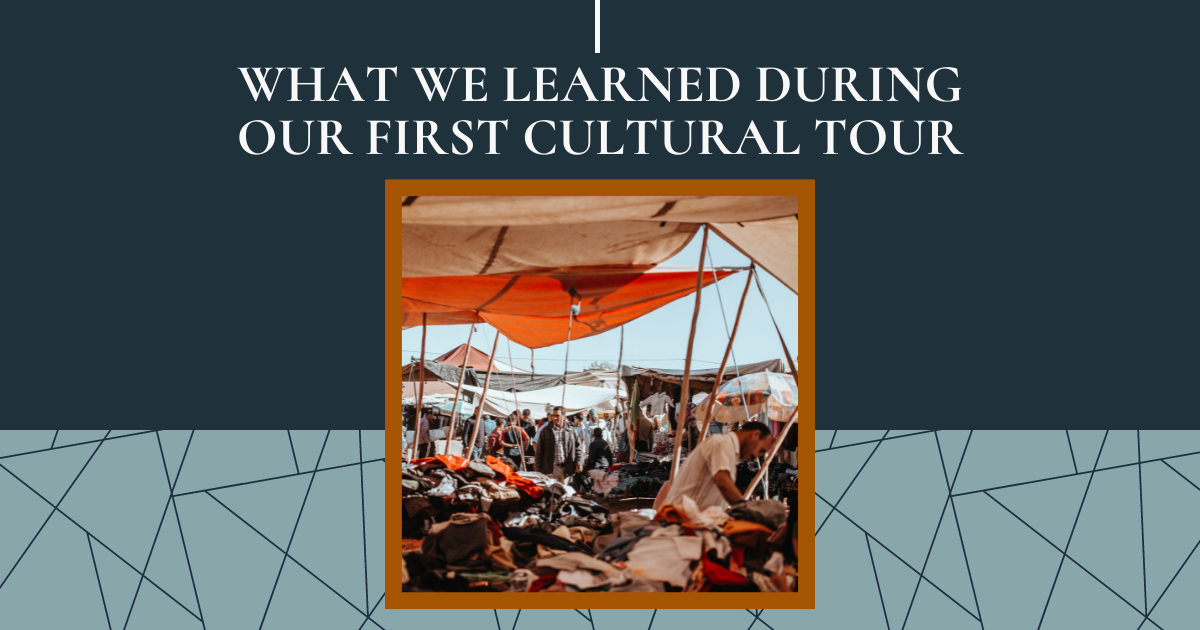Hospitality
“The guest doesn’t place conditions, and the host doesn’t neglect.”
—Moroccan Proverb
Fish and guests smell at three days old. ~ Danish Proverbs
The place of an uninvited guest is behind the door. ~ Yugoslavian Proverb
The life of a guest is seven days. ~ Myanmar Proverb
The first day a guest, the second day a guest, the third day a calamity. ~ Indian Proverb
Visits always give pleasure — if not the arrival, the departure. ~ Portuguese Proverb
A person is a guest for one or two days, but becomes an intruder on the third. ~ Nigerian Proverb
As I was researching the topic of hospitality, I was struck by how many proverbs and sayings there are about hospitality that sound very negative. It seems like while hospitality is a beautiful idea, in practice the reality doesn’t always live up to the expectations. While we have been living in Morocco, we have learned so much about hospitality in hot-climate cultures. For example, during our homestay with a Moroccan family, one day a family of five arrived unannounced to stay for a few days. That meant that we were eleven people staying in an apartment with only one bathroom! That is a pretty extraordinary image of hospitality from our cultural perspective. But the Moroccan cultural perspective says that this situation is normal and acceptable. Even though some principles of hospitality are universal, culture dictates what is expected from hospitality—whether it is spontaneous or planned, where it takes place, and what the specific customs are around hospitality.
Friday Couscous is one of the most special parts of life in Morocco. It is traditional on Fridays to eat couscous together as a family. Moroccans also know that they can freely knock on their neighbor’s door to ask if they made couscous that day and if they have some to share. Couscous is a meal meant for hospitality. When we lived in Fes, we knew that we had a standing invitation for lunch on Friday every week with our closest friends. Now that we live in Casablanca, those same friends have told us that it doesn’t feel right for them to have couscous by themselves, so they don’t have it on Fridays anymore. The shared food is so important that the older generation will usually swear by shared food unstead of God to express their honesty.
Additionally, Moroccans tend to show they are extremely generous and welcoming to their guests through their hospitality. The table will be filled with food, or the couscous piled high in the center of the table. As the hosts sit around the table with their guests, they will continue to put the best in front of the guest, and insist the the guest eats more, even if the latter is full.
Besides the actual food itself, the act of practicing and receiving hospitality is special because host and guest each have a role to play. When you have been invited as guest, you have to know your place, and embody the role of the guest. A Senegalese Proverb explains this idea: “The guest doesn’t untie the goat.” In another example, it would be not only extremely odd, but also truly disrespectful, if you were the guest in someone’s home and provided your own dishes, cutlery, and meal. This would be a decidedly rude way to act as a guest, because when you are the guest, your role is to be dependent on the host to provide, and to follow the host’s lead in the meal.
In Moroccan culture, the meal traditionally begins when the host says, “Say Bismillah,” which means, “In the name of God.” That is the cue for all at the meal to know that the host has led them to begin eating. When we are eating with Moroccan friends at their houses, my husband, Michael, likes to say, “Okay, say Bismillah,” when the meal is about to start, because this makes our friends laugh because it subverts what he is supposed to do as the guest. It starts the meal off with us laughing together, and this laughter lowers our walls and hopefully creates space for connection. Being around the table, accepting hospitality, is a vulnerable position. We are receiving, learning, and accepting, not demanding, pushing, and dominating. In true hospitality, there is give and take, the desire to both share and be open to receive. We love the Moroccan proverb that says, “The guest doesn’t place conditions, and the host doesn’t neglect.” We come prepared to receive without conditions, and the host is ready to provide without limit. In this arrangement, deep relationships are forged. In Morocco, for example, once you share food with someone, an expectation is created that you will be faithful or loyal to him or her. People who share food must avoid doing harm to each other.
Even though hospitality is a universal value, the particulars around hospitality differ, especially between hot-climate and cold-climate cultures. In hot-climate cultures, the hospitality practiced is often spontaneous, like the family that showed up unannounced to stay with our host family for three days. During the Muslim holidays, it is especially common to visit extended family and neighbors, but you can drop in for a visit anytime. I once asked my teacher how you know that the person you are visiting will be there? She told me, “If it is someone you are close to, you probably have an idea of their schedule and would try to visit when they are home. But, yeah, sometimes you show up and they are out. It’s normal. You can either stay and wait with whoever is in the house, or just leave a message.” In cold-climate cultures, which is how I grew up, we plan our hospitality. I typically schedule for people to come over at least a week in advance. It is also a more formal occasion for me than it would be for my hot-climate culture neighbors. For them, hospitality is a day-to-day experience, spontaneous and informal. Because people come first and relationships are more important than tasks in a hot-climate culture, hospitality is a vital part of life, not an interruption.
One particular area of difference in the concept of hospitality across cultures is where the act of hospitality takes place. In many cold-climate cultures, such as the United States, when someone comes to visit, a very hospitable act would be to take them out for a nice meal in a restaurant. However, taking someone to a restaurant would not be personal enough in a hot-climate culture, and therefore would probably not be considered good hospitality. The act of hospitality generally takes place in the home in warm cultures, and can be as simple as having a cup of tea together, but can also be a meal and even staying the night.
An area of confusion, misunderstanding, and difficulty in the arena of hospitality has to do with finances. Sarah Lanier says in Foreign to Familiar, “In most hot-climate cultures, hospitality automatically means taking in and caring for the traveler. If you are visiting someone's home, they take full responsibility for your needs. They house, feed and entertain you, and you are not expected to pay for anything. You are under their roof, and this means you should have no needs that they cannot provide. However, it would also be considered normal, even expected, for the traveler to offer a gift to the host.”
Alternatively, in cold-climate cultures, where individualism is the reigning mentality, each individual traveler is responsible for themselves, including making their own arrangements, and the hosts are responsible for only what has been agreed to in advance. Additionally, as Lanier explains, “In most hot-climate countries, in fact, in most other countries of the world outside of the United States, if someone says to you, ‘Let's get a hamburger,’ it means, ‘I'm inviting you to go and I will pay.’ I rarely find a visitor to the United States who has not learned this custom the painful humiliating way. Usually they have finished the meal by the time they learned that they are splitting the bill, and they either don't have the money with them, or they wish they had known ahead of time so that they could have opted out. They were really not interested in eating out and went only because they thought they were responding to an offer of relationship.” It is important for people from hot-climate cultures to know that, especially in the United States, if the hosts plan to pay, they will usually say so. In Peru, I learned with my Peruvian friends that if I wanted to go out to eat, and I decided to issue an invitation, that meant that I would be paying. This was a learning experience for all of us.
These misunderstandings around hospitality are probably why the Portuguese proverb says, “Visits always give pleasure — if not the arrival, the departure.” But with a little more mutual understanding, hospitality offers a way forward toward connection and relationship, even across cultural differences. In the book Color, Gomis and Sunberg write, “In Senegal, there is a tradition that when the evening meal is prepared, there is always enough for an extra plate. This plate remains in the kitchen in a covered dish, and it is called the ‘fool’s meal.’ It is left there in case a guest might come during the night and need something to eat. There should always be something available, because the spirit of hospitality means that a meal is always prepared to welcome a guest.” This is a beautiful example of generosity and love that we can all learn from the Senegalese.
In a hot-climate culture, hospitality is
Spontaneous
Informal
In the home
Complete provision for travelers and guests
In a cold-climate culture, hospitality is
Planned
More formal
Often in a restaurant
With the assumption that travelers and guests can make their own arrangements
Read about hospitality customs around the world from Babbel here.
Questions to consider:
Have you ever had a misunderstanding related to cultural differences around hospitality?
When you are traveling, are you the host or the guest? Do you know your role, or have you ever tried to “untie the goat.”
Do you live in a cold-climate culture where immigrants from another, hot-climate culture are present? Think about what you have learned about hot-climate ideas of hospitality. Do you think the people around you feel like they are being treated well as a guest? Can you extend hospitality to them, and accept when you are offered hospitality?
Do you like this type of cultural exploration? The Navigator Program may be right for you.
The Navigator Program is an immersive educational experience customized for groups who wish to explore Morocco while also learning how to navigate cultures
















Morocco is a very unique country for several reasons. The first is its strategic location in the northwest of the continent of Africa, just 14 kilometers south of Europe. This beautiful country is bordered by the Mediterranean Sea in the North, the Atlantic Ocean in the West, Algeria to the East, and Mauritania to the South. For this reason, Morocco is a crossroads where cultures, civilizations, and ethnicities meet.